Russia’s invasion of Ukraine has finally forced the world to accept the uncomfortable truth that sport is being weaponised by authoritarian regimes trying to airbrush their tarnished reputations and distract people from their horrendous human rights records. And Australia is not immune from being a major benefactor of the practice commonly known as sportswashing.
Australian sport has been caught in the crossfire of the sporting world’s messy break up from Vladimir Putin.
While sports have been shamed into cutting ties with Russia after the invasion of Ukraine, they’re also being accused of hypocrisy for continuing to accept massive sums of sponsorship money from other countries accused of human rights abuses.
Commonly known as “sportswashing”, it is a highly deceptive, but well-established practice that was pioneered a century ago but has since morphed into a multibillion-dollar global industry that appears to have infiltrated sporting bodies all over the globe, including Australia.
Australia has been identified by human rights groups as one of the biggest beneficiaries of a practice that is under fresh scrutiny after political leaders boycotted the Beijing Winter Olympics in protest at China’s alleged genocide against the Uyghur population .
The game is up for Putin with sporting bodies all declaring him persona non grata, but the focus has now shifted to sporting bodies taking cash from other regimes, particularly China, Saudi Arabia, Qatar and the United Arab Emirates.
RUSSIA FROZEN OUT
The backlash from the sports world has been swift, with Russia banned from countless major events, including the Paralympics, the final qualifying stages of this year’s FIFA World Cup and dozens of world championships including athletics, swimming and figure skating.
Major events that were scheduled to take place in Russia, including the Champions League final, the Sochi Formula One Grand Prix and the world swimming championships, have been cancelled or relocated after sporting bodies united against the Russian dictator.
“This is such a game changer,” said Sebastian Coe, the British president of world athletics, “And, yes, it will set precedents.”
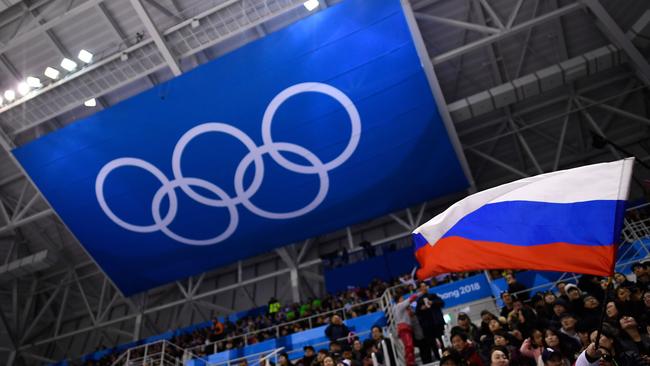
It will need to because while the sport’s world is patting itself on the back for finally standing up to Putin, the unscrupulous practice continues mostly unchallenged - especially in Australia.
Quick to point the finger at other countries for double standards, Australian sports have been accused of turning a blind eye when it suits them by sticking out their hands when there’s free cash on offer.
Ever since they were forced to kick the tobacco habit, Australian sports have been looking for alternative revenue streams, which has led to an increasing number of sponsorship deals with businesses from countries that flagrantly want to improve their own image through sport.
For countries accused of human right abuses, hosting major sporting events, or owning and sponsoring teams and tournaments, is an easy way to direct attention away from the alleged brutality of their leaders.
Putin is the gold standard, having given away truckloads of rubles for the opportunity to host the world’s biggest events to Russia, including the 2014 Winter Olympics and the 2018 FIFA World Cup.
MONEY SILENCES ABUSE
But there are plenty of other autocrats shopping around for sporting bodies willing to overlook alleged abuses if it helps their bottom line – and there’s no shortage of willing customers.
Numerous major Australian sporting bodies, teams and individuals have sponsorship deals with businesses located in countries that are considered by many as among the world’s worst human rights abusers.
And while there’s no suggestion any Australian sporting organisations support the abuses, human rights groups say they need to take a closer look at where the money is coming from because some of their sponsors are based in hardline states accused of everything from human rights abuses to war crimes, genocide to crimes against humanity.
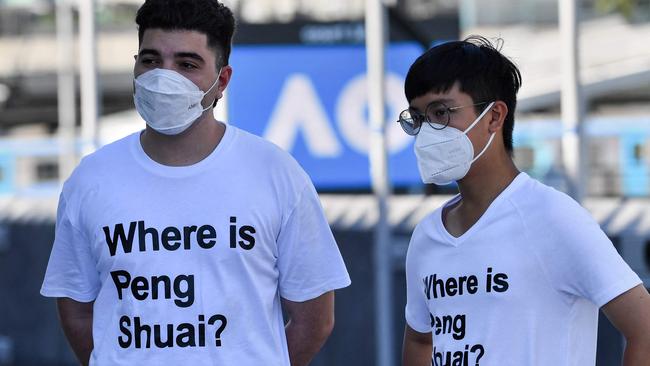
Reverend Tim Costello, the former chief executive of World Vision Australia, told News Corp that choosing corporate partners in sport was not just a financial question, it was also a moral issue.
“Sporting bodies have a licence of trust with the community,” Costello said.
“But when they abuse that licence... the licence is broken.”
Sportswashing has become widespread in Australia with many major sporting bodies having some link with one of those countries.
Tennis Australia’s increasingly cosy relationship with mainland Chinese companies became a hot talking point during this year’s tournament when spectators were kicked out for wearing T-shirts emblazoned with “Where is Peng Shuai?” slogans.
But Tennis Australia is hardly alone.
AUSTRALIAN CULPRITS
The Australian horse racing industry has long benefitted from the deep pockets of Sheikh Mohammed bin Rashid al-Maktoum, who has been accused, among other things, of kidnapping his own daughters after they tried to flee his reign.
It’s easy to see why sports are reluctant to cut ties because the amount of money on offer can be eye-watering.
Court documents that were made public last year revealed that the Dubai leader had pumped more than $1.2 billion into Australian racing through his Godolphin empire, creating hundreds of jobs.
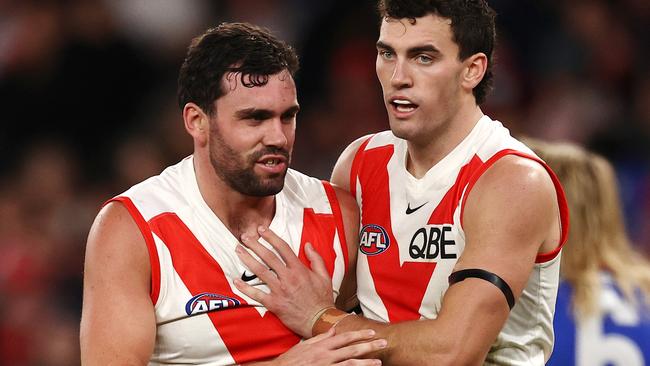
Dubai’s national airline carrier Emirates is a former sponsor of the Melbourne Cup and still retains an interest in other events and teams in Australia, including the Australian Open and Collingwood Football Club, which Emirates boasts “brings us front and centre of the action at the Melbourne Cricket Ground.”
The Sydney Swans are sponsored by Qatar Airways.
The gas-rich Persian gulf state has been heavily criticised by human rights groups for the harsh punishments it inflicts on the LGBT community as well as accusations it uses Asian workers as slaves.
A report released last year claimed more than 6,500 foreign workers had died in Qatar since the country was controversially chosen to host the 2022 FIFA World Cup.
Etihad, the airline carrier based in Abu Dhabi, another state that oppresses freedoms, especially of women, also has deep ties with Australian sport, previously holding the naming rights for the AFL’s Dockland Stadium, while Saudi Arabia is also starting to swing into action.
The Australian professional cycling team GreenEDGE last year announced a sponsorship deal with an arm of the Saudi Arabia government, which - like Putin - is also waging war against its neighbour, in this case Yemen.
ASSOCIATION AND ENDORSEMENT
Saudi Arabia has a growing list of gruesome human rights abuses.
In 2018, Saudi agents murdered the US journalist Jamal Khashoggi inside its Istanbul embassy, dismembering his corpse with a bone saw. Earlier this month, the Saudi government beheaded 81 people in a single day.
The Saudis have revealed ambitious plans to bankroll a new global golf tour, which has already attracted some of the biggest names in the sport including Phil Mickelson, although, the American has described the Arab nation as ‘scary motherfuckers.” He later apologised for his comments.
The chief executive of the proposed tour is Australian former world number one Greg Norman.
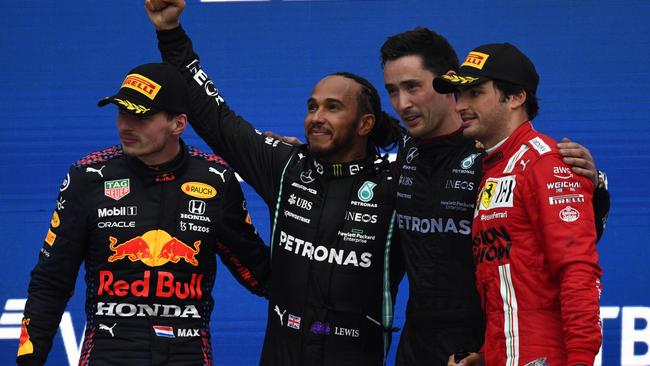
It is not suggested that Mickelson or Norman endorse the Saudis’ actions, with both saying their motivation to work with LIV Golf is to grow the game.
“LIV Golf is not a political organisation,” Norman told News Corp.
“We are here to play golf, serve fans, grow the game, and give additional opportunities to players. Golf is good for the world and that includes Saudi Arabia.
”We’re proud to partner with them and look forward to utilising golf as a vehicle for good around the world.”
But other athletes are increasingly speaking out about countries accused of human rights abuses.
Britain’s multiple world champion Lewis Hamilton has openly questioned whether Saudi Arabia is a suitable country to host Formula one races after revealing that he had been sent a letter from a 14-year-old Saudi boy on death row.
His comments came as last weekend’s race in Jeddah was almost cancelled when Houthi rebels in Yemen launched a missile attack that struck an oil depot 15 kilometres from the circuit.
Drivers voted to proceed with the race but have since demanded that they be given a say in which countries are allowed to stage events in the future.
Human Rights Watch Australian director Elaine Pearson told News Corp Australian sporting organisations needed to be asking questions and being transparent about the countries they accept money from.
“Hosts of Australian sporting events and Australian teams should do their due diligence to ensure that by accepting sponsorship, they aren’t taking part in efforts to cover up violations by governments,” Pearson said.
“Event hosts and teams should have a clear human rights policy in place to vet sponsors for involvement in human rights abuses.
“Increasingly fans, athletes and sports journalists are quite rightly asking tough questions about sponsors with questionable rights records.”
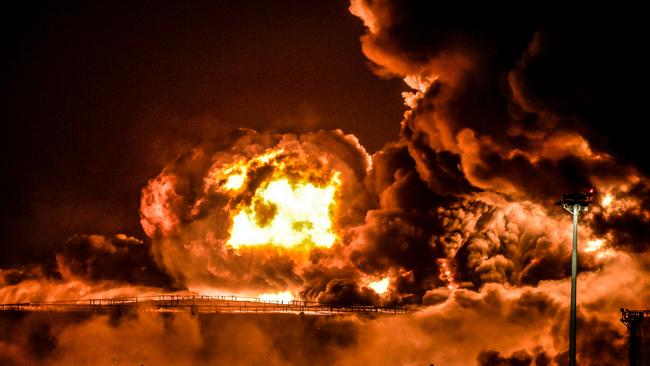
WHAT AUSSIE SPORTS ARE SAYING
News Corp asked Australia’s biggest sporting bodies whether they already had clear policies relating to human rights issues when figuring out sponsorship deals but almost all did not reply.
Some responded only on condition of anonymity, implying they believe the government needs to get involved by working alongside sports to provide a better understanding of the issues and establish some national guidelines.
One of the few sporting bodies that did reply on the record, Cricket Australia said. “Thorough due diligence of this nature can be expensive and time-consuming. We would be open to understanding what a government framework of this nature could look like.”
It is not against the law for Australian sporting bodies to sign sponsorship deals with overseas businesses, even from countries known to disregard human rights, and the mixed signals coming from all governments can often be hard to decipher.
While Roman Abramovich has been ordered by the British government to relinquish his ownership of Chelsea because of his ties to Putin, another English Premier league club, Newcastle, has been cleared to continue as usual despite being bought by the Saudis.
In Australia, the federal government joined in a diplomatic boycott of this year’s Beijing Winter Olympics and has been vocal in criticising China for not calling out Putin, yet local businesses are encouraged to continue trading with the world’s most populated country leaving sporting organisations caught in the crossfire.
“What we really have is sport being overtly political here,” Melbourne University sports law professor Jack Anderson said.
“For years, it’s always been said sports and politics don’t mix, which of course, is nonsense.
“We’re all pretty on the go here with regard to Russia, and rightly so. But there may be other cases that people are beginning to ask questions about.
“And this is the thing for sport. If it’s a line in the sand, maybe it’s time to pause and reflect.”
Amnesty International also thinks the federal government should intervene by conducting a full review into the rules that allow foreign businesses to use Australian sports to boost their own international image.
WHAT ABOUT THE ATHLETES?
“Sports washing leads to supporters and athletes being silenced,” campaigner Nikita White said.
“We saw at the Olympics recently that athletes under the Olympic charter can’t speak out about human rights, and that is really concerning when countries like China use the Olympics to whitewash their reputation.”
Neither the federal sports minister Richard Colbeck nor Sport Australia replied to questions from News Corp about whether the government would even consider establishing a national framework for how taxpayer funds deal with businesses with countries with poor human rights records.
Sport Integrity Australia (SIA) - which has been given new powers to investigate complaints in sport - has however recently joined forces with the Australian Criminal Intelligence Commission (ACIC) to look into concerns raised about team ownership.
“The ACIC is currently assisting SIA with an assessment of serious and organised crime risks associated with the foreign ownership of sporting clubs in Australia,” ACIC executive director of Intelligence Operations Robert Jackson told News Corp.
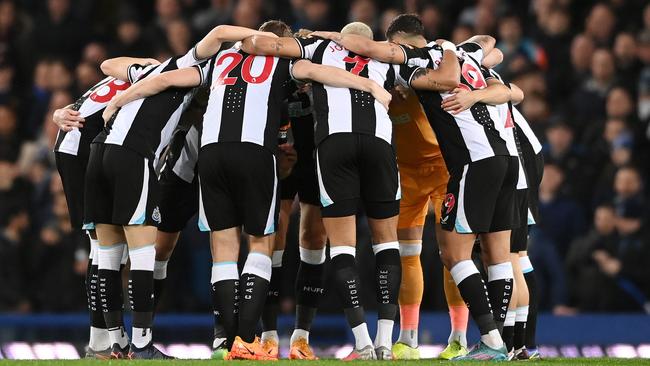
SIA said any sponsorship matters that weren’t criminal would not be on its radar, telling News Corp: “Foreign investment in sport more broadly, including any link to international affairs, is outside our remit.”
A spokesperson for the department of Foreign Affairs and Trade said foreign investment cases were screened by the treasury department while Professor Catherine Ordway, an international expert in sports integrity matters who teaches at the University of Canberra, said everyone with skin in the game needed to act.
“This is a challenge for sport because there are two sides to every coin. And the other side to this sport’s washing coin, of course, is the sports diplomacy space where you use soft power to influence positively,” she said.
“Sport needs to step up and take greater responsibility. If you’re going to accept money (you need to) find out where it’s coming from and who the people that you’re dealing with.
“People don’t tend to do things without wanting some payback of some kind, and if it is a reputational improvement by osmosis if you like, then understand that you’re also taking on their reputation.
“But you also can’t just throw a blanket over an entire nation and say there’s no one good in there to deal with. That is clearly ludicrous and unacceptable.”

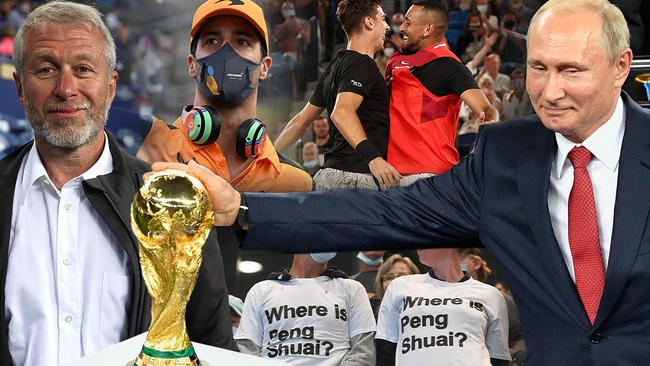
Add your comment to this story
To join the conversation, please log in. Don't have an account? Register
Join the conversation, you are commenting as Logout
36 must-watch players in Langer Trophy schoolboy league
This is your ultimate guide to the 36 must-watch players as Queensland’s elite rugby league schoolboys battle it out for Langer Trophy glory.
Yarra to Thames: Melbourne girls’ hearts set on Henley
A team of elite Melbourne-based rowers, brought together from throughout Australia and beyond, are preparing to tackle one of the world’s most iconic races.